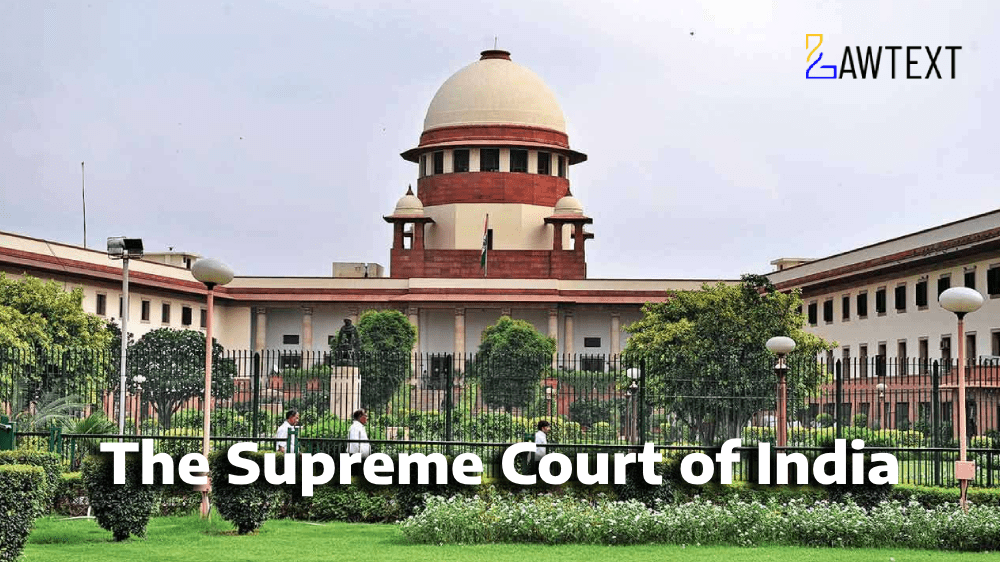CASE NOTE & SUMMARY
The Supreme Court dismissed the review petition filed by the petitioner seeking a review of its earlier decision dated 28.08.2024, which had set aside the grant of bail to the petitioner in Criminal Appeal No. 3573 of 2024. The review petition raised objections based on incorrect observations and alleged unfair treatment in granting bail to co-accused. The Court rejected these arguments, stating that the facts of every case must be judged uniquely, and the petitioner had not demonstrated any significant change in circumstances or judicial error to warrant a review.
The Court further emphasized that the High Court and Trial Court are still empowered to consider future bail applications on their merits. The request for exemption from surrendering and hearing the review petition in open court was dismissed.
Para 1: Background of the Review Petition
- Fact: The petitioner sought a review of the Supreme Court’s judgment dated 28.08.2024 in Criminal Appeal No. 3573 of 2024.
- Case reference: Manik Madhukar Sarve & Ors. v. Vitthal Damuji Meher & Ors.
- Key action: The earlier judgment canceled the petitioner’s bail and directed him to surrender within three weeks.
Para 2: Jurisprudential Basis of Review Petitions
- Fact: The Court referred to Sanjay Kumar Agarwal v. State Tax Officer (2024) 2 SCC 362 to underline the limited scope of review petitions.
- Key Case Citation: A S Raghavendra v. Bharti Airtel Ltd., Review Petition No. 1425/2024
Para 3: Grounds for Review
- Fact: The petitioner challenged the Court's previous judgment based on several arguments, including:
- Incorrect observations in Para 26.
- Lack of clarity on the "later period" or "change in circumstances."
- Ignored precedents related to bail principles ("Bail is the rule, jail is the exception").
- Other accused were granted bail, which the petitioner argued was unfair.
Para 4: Court’s Clarification on “Singling Out”
- Fact: The Court referred to Sanjay Dubey v. State of Madhya Pradesh (2023 SCC OnLine SC 610), reiterating that judgments should not be treated as statutes and each case must be considered on its own facts.
- Key Principle: Every case is unique, and bail granted to co-accused does not automatically entitle another accused to bail.
Para 5: Incapacitation Argument Rejected
- Fact: The petitioner’s argument that he was incarcerated for a significant period was rejected.
- Case reference: The Court cited Union of India v. K A Najeeb (2021) 3 SCC 713 but concluded that the petitioner’s incarceration period of 5.5 months was not significant enough to merit reconsideration.
Para 6: Consideration of the Petitioner’s Role and Bail Conditions
- Fact: The judgment noted that the petitioner’s role and health condition were considered in the earlier decision.
- Court’s Assurance: Future bail applications would be considered on their own merits without prejudice to the bail cancellation.
- Clarification: The lower courts are free to grant bail based on future changes in circumstances.
Para 7: Dismissal of the Review Petition
- Fact: The Court found no grounds for review, as the arguments raised did not meet the threshold for reconsideration.
- Outcome: The review petition was dismissed.
Para 8: Rejection of Hearing in Open Court
- Fact: The Criminal Miscellaneous Petition (Crl. M. P.) seeking an open court hearing was rejected.
Para 9: Exemption from Surrender Dismissed
- Fact: The Crl. M. P. seeking exemption from surrendering was dismissed as the three-week period had already passed.
Para 10: Closing Remarks on Additional Documents
- Fact: The Crl. M. P. seeking permission to file additional documents was closed.
Acts and Sections Discussed:
- Criminal Procedure Code (CrPC) - Principles governing bail and its cancellation.
- Supreme Court Rules - Provisions related to the filing and hearing of review petitions.
Ratio Decidendi:
The Supreme Court’s reasoning relied on the well-established principle that each bail case is decided on its specific facts. The fact that co-accused were granted bail did not automatically entitle the petitioner to the same. Furthermore, no substantial error or change in circumstances was demonstrated by the petitioner to justify reviewing the earlier judgment.
Subjects:
Review petition in criminal law concerning bail cancellation and jurisprudence on review petitions.
- Bail Cancellation
- Review Petition
- Criminal Appeal
- Case-Specific Jurisprudence
Citation: 2024 LawText (SC) (10) 150
Case Number: REVIEW PETITION (CRIMINAL) [DIARY] NO.41376 OF 2024 IN CRIMINAL APPEAL NO.3573 OF 2024 [@ SPECIAL LEAVE PETITION (CRIMINAL) NO.3945 OF 2022]
Date of Decision: 2024-10-15
Case Title: VITTHAL DAMUJI MEHER VERSUS MANIK MADHUKAR SARVE & ORS.
Before Judge: [DIPANKAR DATTA J , AHSANUDDIN AMANULLAH J.]
Appellant: VITTHAL DAMUJI MEHER
Respondent: MANIK MADHUKAR SARVE & ORS.

